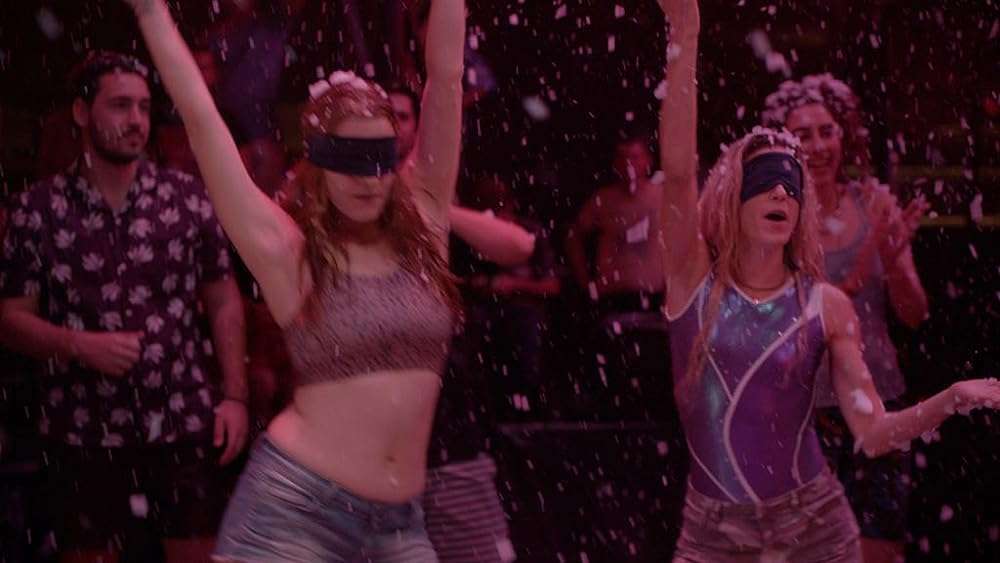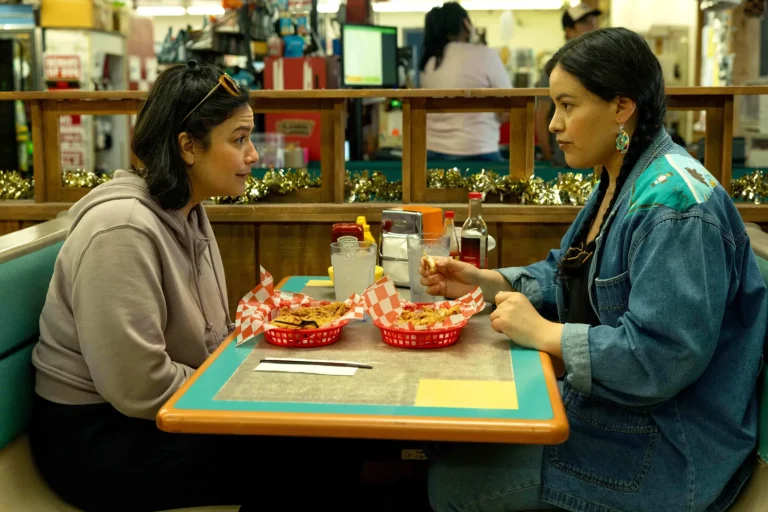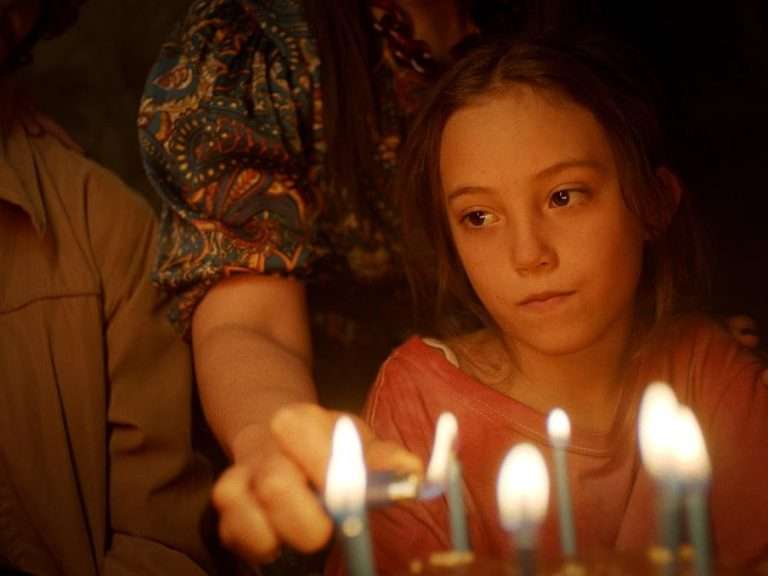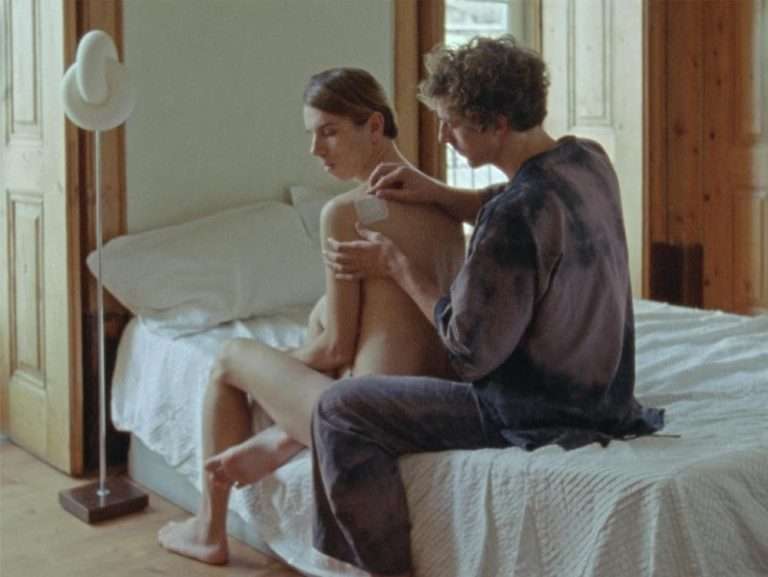Sofia Exarchou’s Animal (2023) creates a sensation of acute unease. Exarchou, who has also written the film, takes us to a facet of resort/hotel life that aims to evoke pleasure for the onlookers and co-participants. The protagonist, Kalia (Dimitra Vlagopoulou, in a Locarno festival-winning performance ), is one of the leading animateurs at a Greek hotel. She has been in the business of entertaining hotel guests for years.
She is closely acquainted with the daily nightly grind, but the viewer senses the impact of each night, each performance in its heady, hectic precarity chipping away at her soul and emotional equilibrium. Kalia can recognize she is losing balance and somehow holds on to the tether of her sanity by mercilessly inflicting another round of performance upon herself, even after a heavily draining one.
The film taps the cruelty embedded within the everyday performative act and its gradually corrosive effects on the individual trapped in a routine that seeks to service others while giving it whatever it takes. But Exarchou is careful not to turn her film into a sob story of a suffering, sacrificial performer who stakes her entire being in pursuit of money and better prospects. There is a fine balance between awareness of one’s agency, which may be miserable, and the liberatory impulse that knows no way out of the dark. Exarchou’s film occupies a strange, disconcerting space somewhere in between.
There is a new batch of rookie performers who the hotel has hired. The screenplay fleshes out the relationship between the young eighteen-year-old Eva and Kalia. Eva is initially retiring and modest; Kalia helps her open up and takes her under her tutelage, teaching her the ropes and injecting her with spark and spunk. The contrast between the naivete of Eva and a much-hardened Kalia draws out a bundle of realizations and epiphanies. Exarchou showcases the grime beneath the artificial shine and splendor, the tights and plumps that the women hurriedly keep piling under their clothes to accentuate their figure and achieve the archetypal image of the attractively bosomy performer.
Exarchou affords the most crucial space in her film to the emotional and psychological toll the gig exacts on, the very cracks in the façade the animateurs put up, which they attempt to cover up nevertheless those amplifying continually. But the struggle to keep the emotions buried, mutely concealing the bursts of cutting pain, can only be put under a lid up to a degree. The camera work of Monika Lenczewska constantly hovers to the immediacy of the circumstances. The film becomes punishing at times, especially a blindfolded party scene that spirals out of control, the visceral edge almost scalding in its effect.

Exarchou builds the scene to unrelentingly claustrophobic heights, leaving the viewer grasping for breath just as Kalia frantically clutches on. She is overwhelmed for a while, sustains a severe injury, yet chins up and proceeds to the next act. The film weighs the grueling nature of work while delineating the little nuggets of momentary escape Kalia forges. The trysts she has with men act as a breather but also reinstate with a barely repressed grief and ache all that she has possibly lost and forsaken in pursuing her work. They tragically remind her of eventuality and life swiftly petering out.
Along with the crushing emptiness, there are the attendant guilt and shame, which Kalia has wholly thrown out. In a scene that almost forms the heart of the film, a distraught Eva tells Kalia about a nightmare involving the sharp judgment of her parents if they were to know her livelihood. Kalia says she has dreams no longer; she sleeps with her mind blank. They discover a mutual fact-both left home at the same age. Kalia leavens Eva’s mood, but there is always an abiding reflection of the sheer despair of their lives.
There is a weariness setting in, which Kalia senses in her bones. Her body isn’t syncing with the effort she is exerting on it; the force of will that drove her also seems to be dipping. Kalia is stretching her bodily limits to meet the performative demands, overlooking wounds as she plunges for yet another round of cheerily dispensed amusement for the guests. Her flirtations culminate in a poignant acknowledgment of a life whose trajectory she can see closing in on her.
Vlagopoulou’s fiercely committed performance, by turns enthralling and suffocatingly anguished, anchors the film, unlocking its troubled, psychologically frayed core. Kalia might seem in command of the troupe and at her job, but the actress masterfully pokes out the ruptures, the slinks of fear and sadness in Kalia’s armor, delivering the most heartbreaking karaoke rendition of Baccara’s Yes Sir, I Can Boogie.





![Bali: The Victim [2021] Review: This Vishal Furia film stumbles to make an impact](https://79468c92.delivery.rocketcdn.me/wp-content/uploads/2021/12/Bali-Vishal-Furia-768x432.png)

![Raame Aandalum Raavane Aandalum [2021]: ‘Prime Video’ Review – Political Satire has it’s heart in the right place, but little else](https://79468c92.delivery.rocketcdn.me/wp-content/uploads/2021/09/Raame-Aandalum-Raavane-Aandalum-1-highonfilms-768x432.jpg)
